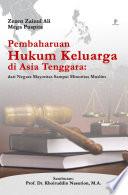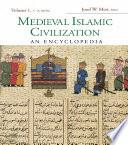
Pembaharuan Hukum Keluarga di Asia Tenggara: Dari Negara Mayoritas Sampai Minoritas Muslim - Jejak Pustaka
Hadirnya buku yang berjudul Pembaharuan Hukum Keluarga di Asia Tenggara: Dari Negara Mayoritas sampai Minoritas Muslim, merupakan buku yang membahas mengenai kajian hukum keluarga, kususnya dalam hal pembaharuan hukum keluarga. Buku ini juga menyajikan kajian yang komprehansif dimana pembahasan tidak hanya berfokus pada hukum keluarga yang ada pada negara mayoritas muslim melainkan juga pada negara-negara minoritas muslim. Buku ini nampaknya hadir dan berkeinginan untuk memberikan manfaat terbaik bagi semua kalangan. Khususnya praktisi, akademisi dan para pecinta ilmu pengetahuan, khususnya dalam kajian hukum keluarga sebagai rujukan.
- ISBN 13 : 6231831477
- ISBN 10 : 9786231831477
- Judul : Pembaharuan Hukum Keluarga di Asia Tenggara: Dari Negara Mayoritas Sampai Minoritas Muslim - Jejak Pustaka
- Pengarang : Zezen Zainul Ali, Mega Puspita, Mega Puspita,
- Kategori : Education
- Penerbit : Jejak Pustaka
- Bahasa : id
- Tahun : 2023
- Halaman : 197
- Google Book : https://play.google.com/store/books/details?id=hui3EAAAQBAJ&source=gbs_api
-
Ketersediaan :
Hadirnya buku yang berjudul Pembaharuan Hukum Keluarga di Asia Tenggara: Dari Negara Mayoritas sampai Minoritas Muslim, merupakan buku yang membahas mengenai kajian hukum keluarga, kususnya dalam hal pembaharuan hukum keluarga.









